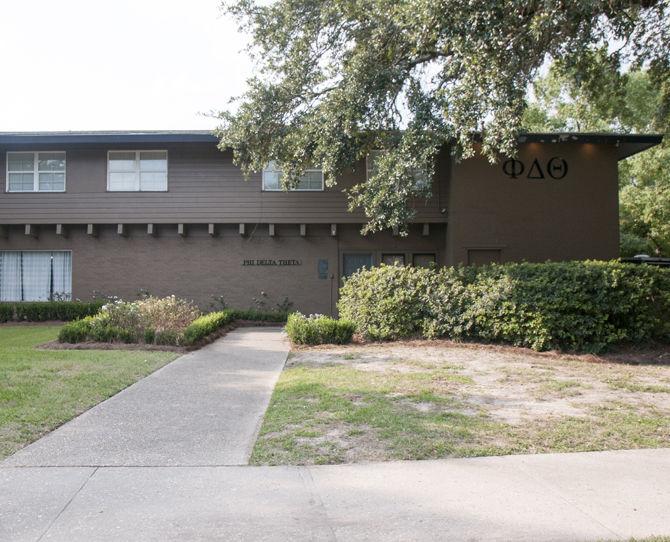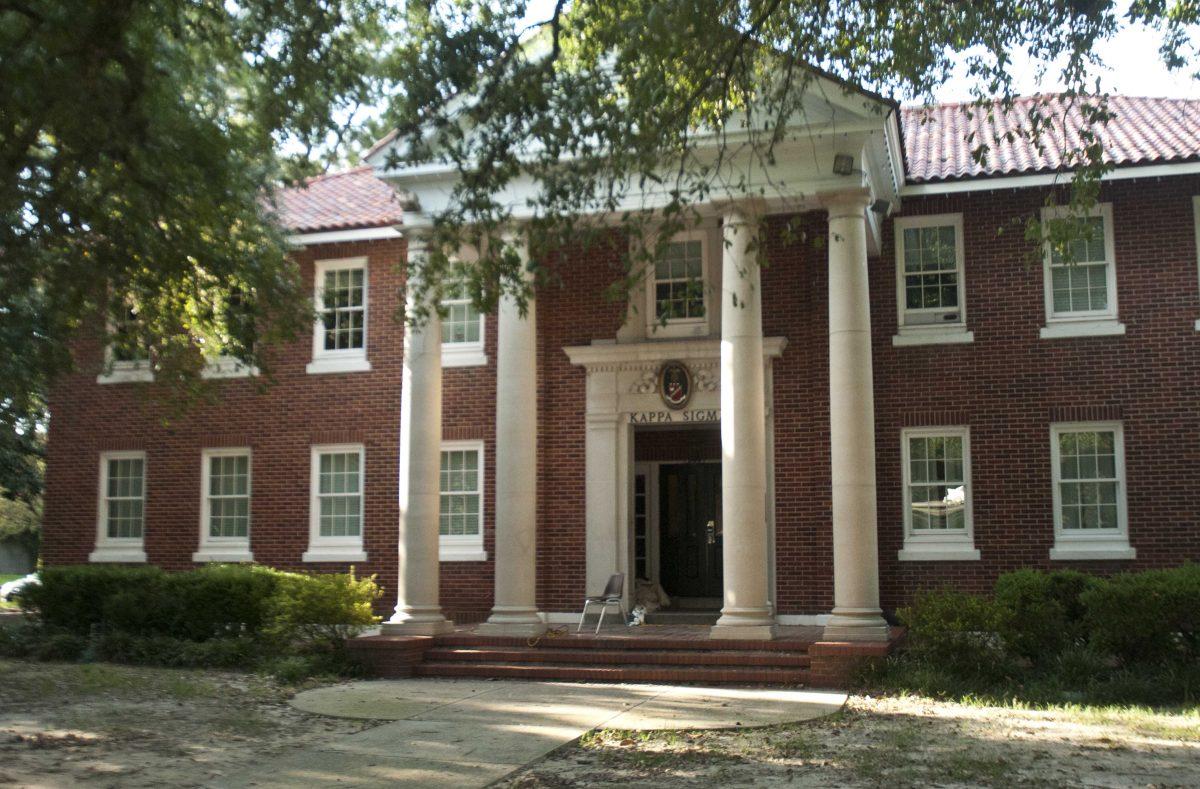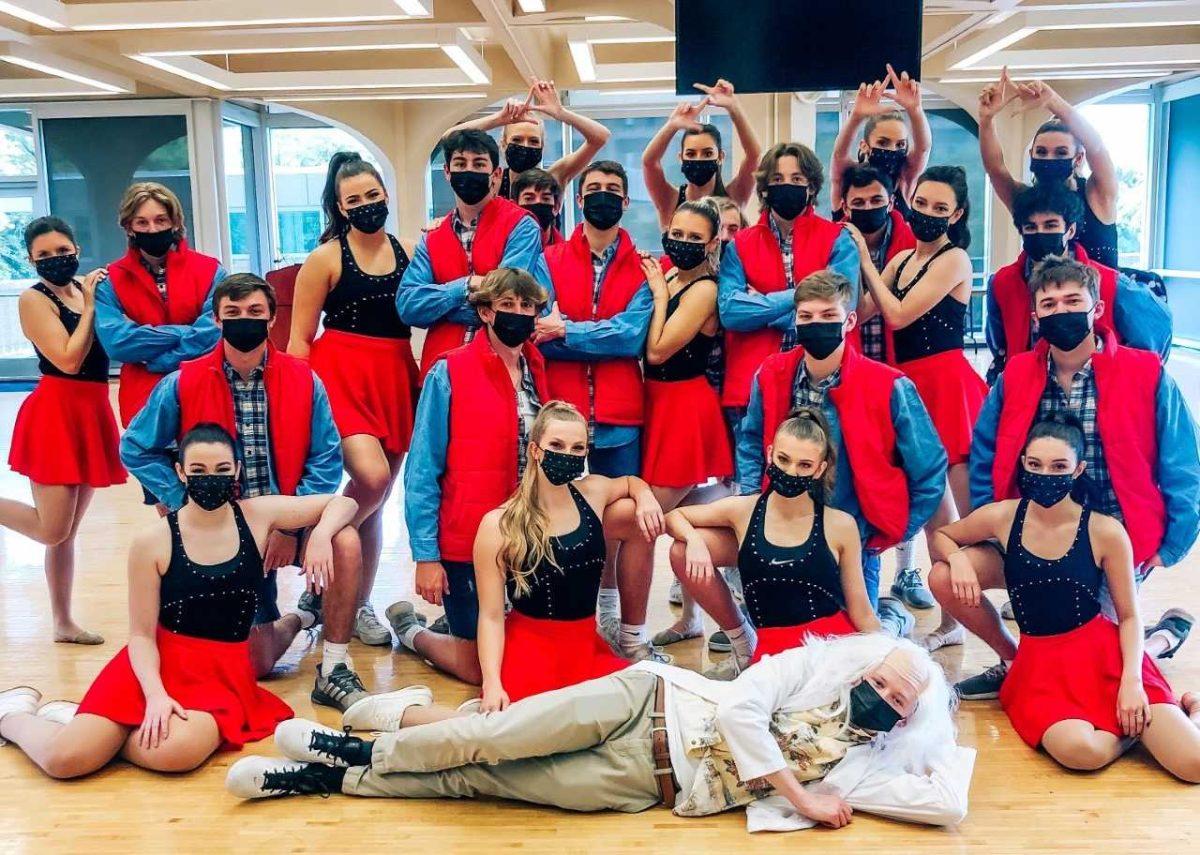The death of Max Gruver shocked the nation, but the events of “Bible Study” reflected a pattern of excessive drinking and hazing that infected Phi Delta Theta years before the fatal night of Sept. 13, 2017.
Pledges were summoned to the fraternity house for “Bible Study,” a hazing event where pledges were quizzed on the fraternity and the Greek alphabet, and forced to take “pulls” of Diesel, a 190-proof liquor, when they answered incorrectly.
But warning signs were present before that night.
The national Phi Delta Theta organization implemented alcohol-free housing in 2000. However, the LSU chapter saw this as no hurdle to their hazing rituals. The University’s policy of self-investigating allegations made it easy for them to bypass this policy.
The University’s “Partnership Process” relies on fraternity members to investigate allegations of misconduct made against the chapter and to report their findings to the Student Accountability & Advocacy service and the Office of Greek Life.
During summer recruitment in 2013, it was determined the University’s chapter recruitment chair had provided alcohol to underage potential new members, according to the civil complaint filed by the Gruver’s lead attorney, Douglas Fierberg, in August. As a result, the Interfraternity Council placed the chapter on probation until fall 2014.
One week after the fraternity was placed on probation, the University received a hazing complaint about the “Capture Game,” during which active members were kidnapping pledges, requiring other pledges to rescue them and compelling kidnapped pledges to drink alcohol before they were released. The “Capture Game” had been a tradition since the chapter was founded with the purpose of bringing about brotherhood through competition.
Even though the chapter was on probation, it was allowed to investigate the allegations internally. The chapter admitted to the “Capture Game,” but blamed any violations on a few “rouge members” and agreed to discontinue the game. The chapter received no further punishment.
A few months later, in March 2014 — while still on probation — the chapter was found to be violating hazing policies again. The allegations included forced servitude, physical exercise, verbal abuse, scavenger hunts, forced alcohol consumption and coaching pledges on interactions with Phi Delta Theta’s national headquarters, according to the complaint. The chapter was again allowed to self-investigate the allegations.
The investigation found that hazing had continued in the chapter, including hazing directed by those in charge of the pledge program. The chapter had not followed the Fall 2013 Enhancement Plan, which required them to discontinue the “Capture Game.” The chapter also admitted that active members told pledges not to tell anyone about the hazing.
As a result, the chapter was placed on probation until May 31, 2015, and was required to appoint an adviser responsible for overseeing the pledge education program, restructure its new member program and have at least one Chapter Advisory Board member at all new member events through spring 2015.
In January 2016, a “concerned parent” said that chapter members smoked marijuana in and around the fraternity house every day. The University took no action on the report.
During October 2016, it was reported that pledges were required to buy chewing tobacco and cigarettes to have readily available for active members upon request. Pledges were required to be at the fraternity house every day at 6 a.m. and at tailgates at 1 a.m. before football games. Pledges were to be available to active members at all times except when they were in class, had 24 hours before a test or had parents in town. The pledges also were called to deliver food and pick up members from bars, according to the complaint.
After a self-investigation, it was determined that hazing had occurred, but the blame was pinned on one alumnus member and four active members, who were then placed on social probation.
During the investigation, a “concerned student” said he witnessed the fraternity hazing during tailgates and members continuing to harass pledges after the tailgate.
“Most of the time these young boys are completely intoxicated with obvious signs that they’ve puked themselves many times,” the student said in the report. “[I heard from them at tailgates] that they need to ‘get them good’ before they’re initiated.”
About a week later, a parent and an LSU Greek Life alumna also reported the fraternity’s behavior at a tailgate.
“We saw pledges sleeping in their own puke behind the bar while people were pouring beer and snorting cocaine,” she wrote in the report.
No formal action was taken on this report, but a few days later the chapter was placed on interim suspension as a result of the first report from the “concerned student.” The complaint said LSU Director of Greek Life Angela Guillory and another Greek Life staff member “begged for assistance” from Phi Delt’s Director of Chapter Services and Phi Delt’s chapter consultant, according to the complaint.
On Dec. 21, 2016, the chapter was taken off interim suspension and could “conduct business and resume normal activities.”
On Sept. 6, 2018, East Baton Rouge Parish Assistant District Attorney Morgan Johnson presented evidence of Matthew Naquin’s behavior in the weeks before Gruver’s death to the judge to be used as evidence in his trial.
Naquin is a former fraternity member being charged with hazing and negligent homicide.
Johnson played recordings of interviews between former fraternity members and East Baton Rouge investigator for the district attorney’s office Jeff Malone.
A pledge told Malone that Naquin cursed and yelled at a pledge on Aug. 26, 2017. The pledge said he thought Naquin’s actions were extreme and reported it to other active members.
On Aug. 30, 2017 when the University closed for weather concerns, pledges were summoned to the fraternity house and forced to clean. The pledges were not allowed to leave until they finished the alcohol that was provided, a former pledge told an investigator. He said there were about three pledges per one handle of alcohol.
During the “hurricane day,” a former pledge said he vomited and lost consciousness after drinking.
A former pledge said Naquin shot pledges with an airsoft gun while they were watching the tailgate the night before a home football game on Sept. 8, 2017.
The fraternity’s executive board discussed Naquin’s behavior Sept. 11, 2017 and gave him a warning at a chapter meeting.
Two days later was “Bible Study,” a hazing event former fraternity members continue to pay for one year later.
*Editor’s Note: Hailey Auglair is a former member of Delta Gamma sorority. She is no longer affiliated with the sorority.
The Hazing Edition: LSU Phi Delta Theta had long history of hazing prior to Max Gruver’s death
September 11, 2018
Police investigate the death of an LSU student on Wednesday, Sept. 14, 2017, at the Phi Delta Theta fraternity house.
More to Discover








